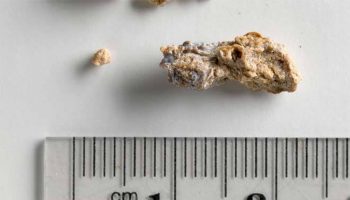THE OTHER LEMON
What comes to mind when Lemon grass is mentioned is the sourr citrus fruit, but on the contrary lemon grass is named such but has no connection with lemons except that it has a strong lemon-like aroma and taste.
As with all grasses, lemon grass is very fibrous and cannot be eaten as it is. You can juice it using amasticating juicer, or make tea of it. It has tremendous health benefits that are especially helpful when consumed during a juice fast/feast or when on a detox program as it helps rebalance the intestinal flora.
Properties:
The main chemical component found in lemongrass is citral, an aromatic compound, also known as lemonal. Citral is used in perfumes because of its lemon odor. It is the presence of citral which accounts for lemongrass’ lemon scent. It is an antimicrobial and therefore effective in destroying or inhibiting microorganisms. Citral also contains antifungal properties. This chemical has pheromonal qualities, which explains its industrial use as an insect repellant. It also has a positive effective on the body’s ability to use Vitamin A. The compounds myrcene, citronellal, geranyl acetate, nerol and geraniol are found in varying quantities in Citral. Myrcene, geraniol and nerol contribute to lemongrass’ strong fragrance, citronella acts as an insecticide and geranyl acetate is another flavoring agent. Lemongrass has rubefacient properties, meaning that it may be able to improve blood circulation.
Nutritional Benefits
Do not let this humble grass deceive you. It is packed with so much goodness that it can help improve so many chronic conditions. Nutrition-wise, it is a good source of vitamins A and C, folate, magnesium, zinc, copper, iron, potassium, phosphorus, calcium and manganese; with minute traces of the B vitamins From the leaves and stems, citronella oil is obtained for making insect repellent, soap, perfumery and flavorings.
Health Benefits
Lemongrass has long been widely used in Asian countries for its medicinal properties and also in culinary.
What makes it so effective in many medical condition is that it has certain anti-septic compounds that effectively kill the harmful micro-organisms (bacteria, yeast, fungal, parasites, etc.) in the digestive tract, YET preserving the beneficial bacteria.
Staphylococcus aureus:
Studieshave shown that lemongrass essential oil has an anti-biofilm capacity and is beneficial against the infection caused byStaphylococcus aureus.Lemon grass contains phenols which possess the capability to spread quickly through the body tissues and cure biofilms located anywhere in the body.Lemon grass disrupts the growth and communication of germs which helps in inhibiting the formation of biofilms. The essential oil of lemongrass is useful for application both topically as well as internally in the diseases diagnosed with biofilms, such as Lyme disease.
Stomach Disorders:
Studieshave shown that lemongrass essential oil has anti-microbial and anti-bacterial properties which help in fighting the infections caused by various pathogens such asHelicobacter pyloriandEscherichia coli.Lemongrassis beneficial in the prevention of gastrointestinal disorders such as gastric ulcers, helps in stimulating the bowel function, and improves digestion. The anti-inflammatory properties of lemongrass are beneficial for treating constipation, ulcerative colitis, diarrhea, nausea and stomach aches.
Insomnia:
Lemon grass aids in calming the muscles and nerves which helps in inducing deep sleep. Research has shown that lemon grass tea has sedative and hypnotic properties which help in increasing the duration and quality of sleep.
Respiratory Disorders:
Lemongrassis widely used in Ayurvedic medicine for its healing effects in treating coughs and colds. Along with other beneficial components, the vitamin C content present inlemongrasshelps in providing relief from nasal blockages, flu and other respiratory disorders such as bronchial asthma.
Fever:
Lemongrassis a febrifuge and is also known as the ‘fever grass’, owing to its beneficial effects in lowering fevers. The anti-pyretic and diaphoretic effect of lemongrass is extensively used in Ayurvedic medicine for curing fevers by inducing sweating.
Detoxification:
Lemongrasshelps in cleansing and flushing harmful toxic wastes out of the body, as a result of its diuretic properties. Detoxification helps in better regulation of various organs of the body, including the liver and kidney, while also helping to lower the levels of uric acid. The diuretic effect of lemongrass helps in increasing the quantity and frequency of urination, which helps in maintaining digestive health, eliminating accrued fats, and assisting in maintaining a clean system.
Cancer:
Lemongrass is effective in treating various types of cancers without affecting the healthy normal cells of the body. Research conducted to prove the anti-cancerous activity of lemongrass has shown promising outcomes in the prevention ofskin cancer. Studieshave shown that a certain component,citral,which is present in lemongrass, helps in inhibiting the growth of hepatic cancer cells during the initial phases and prevents any further production of cancerous cells. Another study has provided supporting evidence regarding the anti-proliferative effect of citral in impeding the growth of human breast cancer cells and the induction ofapoptosis.
Bacterial or fungal infection:
Thanks to its anti-septic properties, drinking lemongrass tea for a season helps to eliminate the bad micro-organism, detoxify and purify the blood, keeping bacterial, fungal or yeast infections in check.
Balsamic action:
Due to its content in volatile oils, lemongrass has a beneficial, balsamic action on the respiratory tract. So it can be used to relieve the symptoms associated with flu, cold and hay fever.
Obesity:
Lemon grass contains citral, which has been proven to be effective in combating obesity. It prevents the accumulation of abdominal fat and promotes the use of stored energy, which helps in preventing diet-induced weight gain. It aids in healthy metabolism and enhances the oxidation of fatty acids in the body.
Type-2 Diabetes:
Lemon grass has been proven beneficial in treating Type-2 diabetes. Studies have shown that the citral present in lemon grass helps to maintain optimum levels of insulin and improves the tolerance of glucose in the body.
Digestive health:
Lemon grass helps regulate intestinal function and motility due to its anti-microbial properties. It helps to kill bad bacteria and parasites, repopulate the good bacteria in the colon, thus assisting to improve digestive-related problems like: indigestion, constipation, diarrhea, intestinal bloating, flatulence, stomach spasms, vomiting and cramps.
Gastritis or Heartburn:
A warm mug of lemon grass tea can be very soothing when having gastritis or acid indigestion. Drinking the tea therapeutically will gradually reduce the recurrence of both gastritis and heartburn.
High blood pressure:
The high potassium content promotes diuresis, thereby helping to lower and regulate blood pressure. Regularly drinking lemongrass tea is encouraged.
High cholesterol:
Lemongrass has an anti-cholesterol and anti-atherosclerosis action. It helps reduce both the absorption of cholesterol from the intestine, as well as the oxidation of LDL-cholesterol in the blood, thus preventing one of the first steps in the formation of atherosclerotic plaques.
Nervous system:
Magnesium, phosphorous and folate are important nutrients needed for healthy functioning of the nervous system. They help improve concentration, memory and the brain’s ability to process information.
Purifying action:
Perhaps the most characteristic action of lemon grass is its purifying effect on the whole body, since it helps eliminate toxins from the body by enhancing the cleansing of the colon.
Skin health:
When blood is purified, circulation is improved, skin health will follow suit. Regularly drinking lemongrass tea helps to improve acne problem, eczema and psoriasis.
Weight loss:
Drinking lemon grass tea helps to melt fats in a detoxifying manner. The diuretic effect helps carry out the wastes in high volume, effectively and quickly, resulting in weight loss.
Lemongrass is LIKELY SAFE for most people when used in food amounts. It isPOSSIBLY SAFEwhen taken by mouth or applied to the skin short-term for medicinal purposes. However, there have been some toxic side effects, such as lung problems after inhaling lemongrass and a fatal poisoning after a child swallowed a lemongrass oil-based insect repellent.
Special Precautions & Warnings:
Pregnancy and breast-feeding: It isLIKELY UNSAFEto take lemongrass by mouth during pregnancy. Lemongrass seems to be able to start menstrual flow, so there is a concern that it might cause a miscarriage. There is not enough reliable information about the safety of taking lemongrass if you are pregnant or breast-feeding. Stay on the safe side and avoid use.
Consumption Tips
Lemongrass is used widely in Asian cooking. It is usually crushed or pound to release its nice lemony aroma that adds fragrant to foods. It can be used to prepare soups, broths, curries, sauces, tea, as well as cut into thin slices and added to a variety of salads.
The leaves, stem and bulb of lemongrass can be used for their various health benefits. To benefit most from it, make and drink lemongrass tea, as the essential oils and phytonutrients are leaked into the boiling water that is the tea.
Phytonutrientsdo not get destroyed by heat.
Caution
Lemongrass juice can be very potent to be taken on its own. Best to make tea out of it for easier consumption and for maximum benefits. Do not consume, however, if you’re on any medication as it may interfere with the drugs you’re taking.
previous article
THE DANGERS OF LIVING TO EAT
next article
FIRST AID FOR DIARRHOEA
The author Prince
Hi, I’m Prince.. a registered Dietitian, an avid reader and a passionate writer. I hope you enjoy my articles as much as I enjoy writing them







